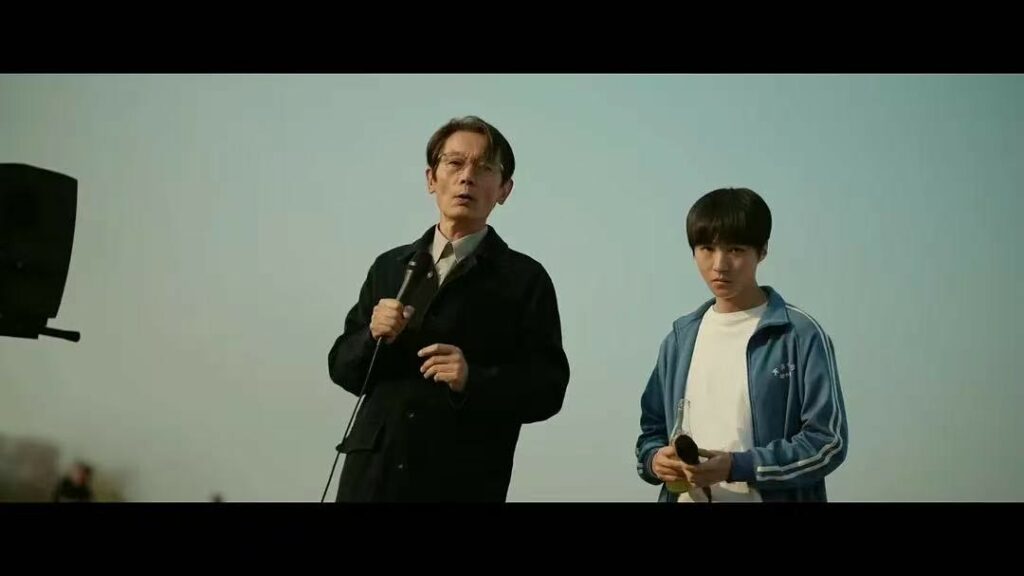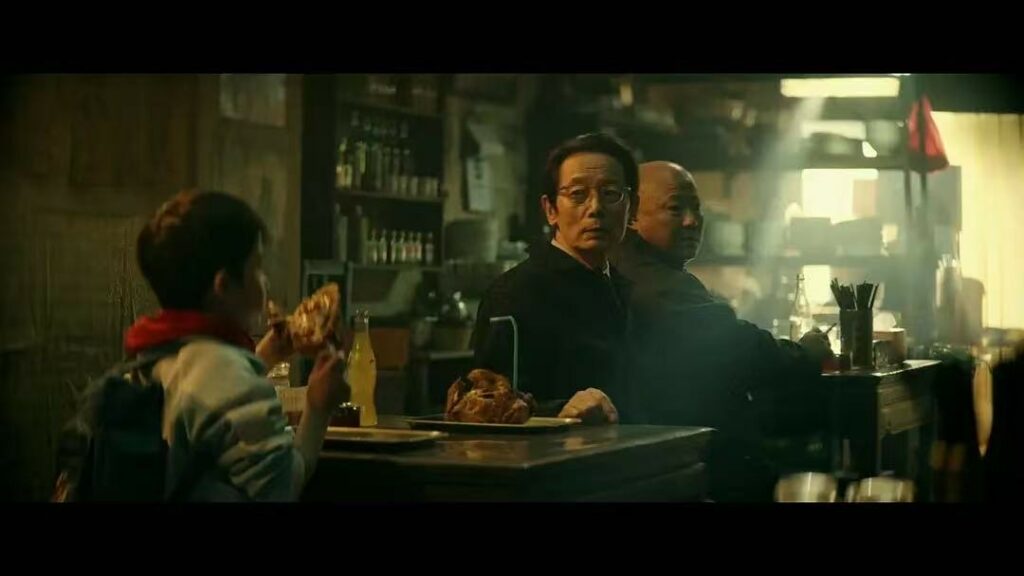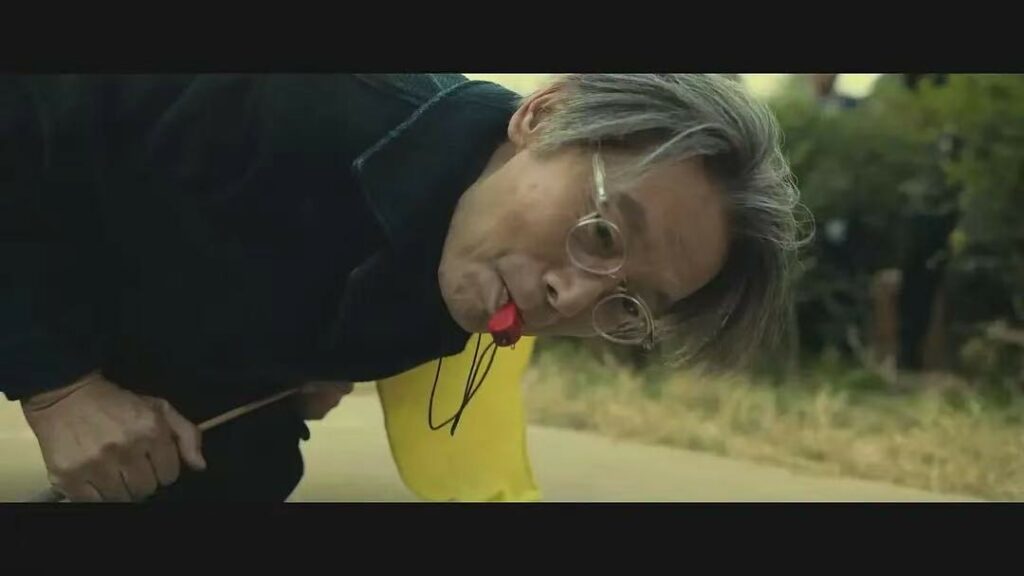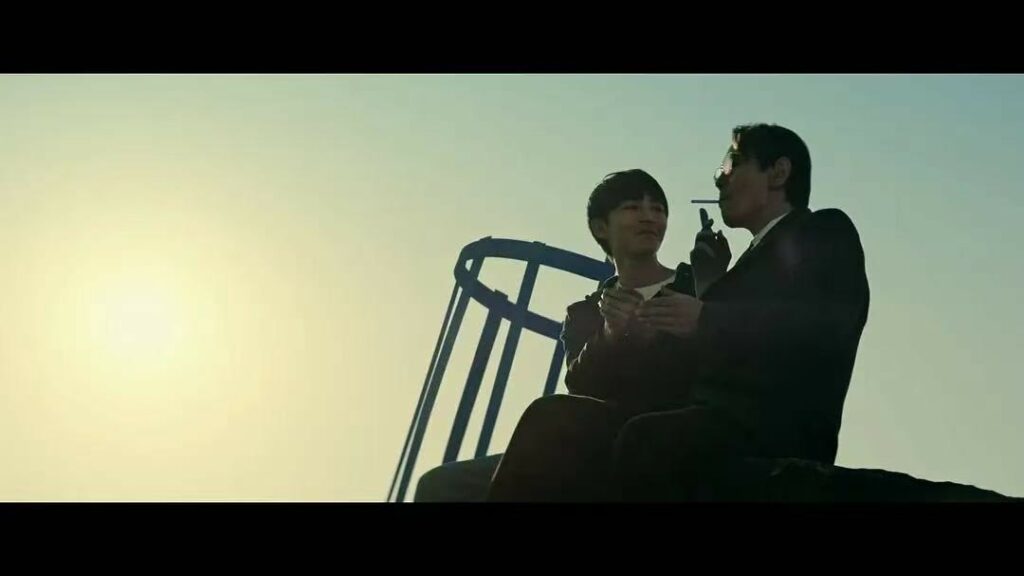Out of Step with the Remainder of the World: A Dialog with Zheng Zhi

All stills from The Hedgehog (2024). Images courtesy of Zheng Zhi.
The author Zheng Zhi’s first novel, Floating, was printed in China in 2007, when he was nineteen years outdated. Since then, he has printed three extra—a fifth will come out this yr—in addition to quite a few volumes of quick fiction, all whereas writing prolifically for movie and tv. His literary profession has positioned him on the vanguard of what’s now often called the Dongbei renaissance, a bunch of writers hailing from the northeastern provinces of Heilongjiang, Jilin, and Zheng’s native Liaoning, all of whose upbringings have been marked by the recession that occurred there within the eighties and nineties. Given Zheng’s stature in his house nation, it feels shocking that “The Hedgehog,” which seems in the Assessment’s new Spring problem, is his first work of fiction to be printed in English. With assist from the novelist Jeremy Tiang, who translated the story, we spoke to Zheng in regards to the turns of destiny and the funding points which have, over time, led him away from and again to severe writing, in addition to about his childhood worry, which makes its approach into the story, that his sanity would maintain out for under so lengthy.
—Owen Park
INTERVIEWER
“The Hedgehog” was first printed anonymously with the title Xiānzhèng (Immortal syndrome), as a part of a contest within the literary journal Lǐ (Newriting). The story brought on a little bit of a stir amongst readers within the Chinese language literary world as they struggled to guess the identification of its writer. As much as that time, you’d been extra profitable within the realm of business fiction. What was it wish to take part on this nameless contest?
ZHENG ZHI
The entries have been a mix of open submissions and solicited manuscripts. One of many editors, Zhou Jianing, approached me to ask if I’d have an interest, and naturally I accepted the problem, partly to power myself to attempt one thing new. Six months later, with the deadline quick approaching, Jianing checked in to see how I used to be doing—and as I’d fully forgotten that I’d agreed to do it, I ended up writing the entire story within the last three days. The phrase restrict was twenty thousand characters, and my story was nineteen thousand. If not for this restriction, I’d in all probability have saved going and turned it right into a novella or perhaps a quick novel. All of the short-listed tales appeared within the journal—I bear in mind they have been unfold throughout three points over three or 4 months—and in addition on the journal’s WeChat web page. Readers had the selection of shopping for the journal or just studying them on-line. As promised, the tales have been credited solely by a serial quantity—I used to be no. 11—and other people have been speculating about who every writer is perhaps. I used to be stunned by what number of younger writers acquired concerned in these discussions, which turned fairly animated. The organizers did an excellent job preserving issues confidential—or no less than I didn’t know who any of the opposite authors have been. The entire competitors felt truthful, and really thrilling. I’d beforehand seen this form of “nameless” competitors solely on the planet of selection reveals, the place singers put on masks and the viewers has to guess who they’re based mostly on their voices. The best way I see it, an writer’s model is equal to a singer’s voice. Being identifiable is essential.
I nonetheless bear in mind the award ceremony vividly. Typically, literary award ceremonies aren’t notably thrilling. This one was totally different—within the last spherical, the three judges conferred in a separate room for 2 hours as their deliberations have been broadcast to the stay viewers within the auditorium. I used to be seated within the viewers, which was fairly a bizarre expertise. I hadn’t been nervous, however the ambiance made me increasingly anxious. And it was thrilling after they introduced the outcomes. I may say to myself, This quick story is unquestionably essentially the most sensible one in the entire contest—no have to be modest at that time.
Onstage, receiving my prize, I used to be excited to say that I appeared ahead to everybody attending to know me another time. For a few years, I’d been writing all kinds of random issues that you just wouldn’t actually name “literature,” simply placing phrases on the web page to earn cash, however I had gained somewhat little bit of fame via that. On that stage, although, I spotted that the viewers—and even the judges—had no thought who I used to be. Seems I wasn’t as effectively often called I’d thought! That’s when it got here house to me that the worlds of literary and business fiction are fully separate, so despite the fact that I’d already been writing for a decade, I used to be nonetheless thought-about a newcomer.
INTERVIEWER
What do you imply by “random issues that you just wouldn’t actually name ‘literature’ “?
ZHENG
That is laborious to explain to individuals outdoors of China. Round 2014, social media took off in China, particularly Weibo, and on-line writing progressively modified younger readers’ tastes. Many writers sidestepped conventional publishing to place out their very own “little tales” or “bits and items” on-line. Unexpectedly, these turned massively common. This writing was web-friendly in size and material—quick, fast-paced, principally to do with romance, and stuffed with on-line hipster slang. Fairly just a few individuals managed to turn into well-known from this type of writing and earn a good sum of money. On the time, I used to be attempting to write down novels, however my books offered poorly and I wasn’t making sufficient to help myself. So I compelled myself to chase this pattern and started publishing random issues on-line. I discovered this painful as a result of none of it had something to do with literature. Satirically, these posts acquired me a variety of consideration and attracted producers who bought the movie rights, so I made a decision to turn into a screenwriter. In doing so, I spotted that my random scribblings have been extra like movie remedies than fiction—they have been stuffed with dramatic incidents and pacey narration they usually had a powerful visible aspect. In addition they had what we name “golden strains”—slogan-like bits of dialogue that the movie studios beloved. I wrote extra of those and earned much more cash. As quickly as I not wanted to fret about supporting myself, I mirrored on what I used to be doing and understood that if I went on like this, I’d find yourself destroying myself. I returned to correct writing, which is how I got here to write down “The Hedgehog.” And so the prodigal son returned.

INTERVIEWER
You additionally wrote a screenplay of “The Hedgehog,” which was made right into a 2024 movie of the identical identify. What made you determine to show the story right into a script?
ZHENG
Ten years in the past, once I stumbled into screenwriting, each script I wrote was tailored from my quick tales and different on-line scribblings. Later, I additionally tailored one in all my novels right into a sixteen-part net sequence. To today, I’ve by no means written an authentic story for the display. I don’t actually decide whether or not a specific narrative turns into a brief story or a screenplay. I’ve at all times been a fiction author first, and the screenplays have grown out of my fiction.
Writing scripts is painful. Despite the fact that my scripts have been tailored from my fiction, I’ve a variety of blended emotions about the way in which writers don’t get the ultimate say over their scripts. It’s a tragic joke, a paradox of the film enterprise. I tailored “The Hedgehog” as a result of the director Gu Changwei acquired in contact and instructed me that he appreciated the story lots. He’s a well known filmmaker, and I used to be very keen on his earlier work, so I made a decision to attempt collaborating with him. Quite than handing it over to a different screenwriter, I believed I’d as effectively work on the script myself and earn somewhat extra cash. Writing the script was a extra rigorous course of than with my earlier work, and now that I’ve received some awards for it, I’m taking the film enterprise a bit extra severely. In actual fact, I’m within the technique of transitioning from screenwriter to director.

INTERVIEWER
This story is especially instructed within the type of recollections. Why, to you, is it necessary that we be taught in regards to the narrator’s household—and Shenyang within the nineties—from his perspective as a baby?
ZHENG
Many readers outdoors China don’t know in regards to the ache that the three northeastern provinces, particularly my hometown, Shenyang, which is in Liaoning province, skilled through the nationwide financial downturn within the nineties. I needed to place that context into the story as a result of I felt that then readers would higher perceive why a voice like this narrator’s was sure to come back alongside. The era born within the fifties and sixties skilled a wave of layoffs. These have been individuals round my father’s age, and the narrator’s uncle Ensign Wang went via this stuff too. However they’re removed from the one accidents that Ensign Wang suffers—he was born within the forties and lived via the Cultural Revolution. To the narrator’s mind-set, Ensign Wang’s insanity is well defined as a result of equally tormented lives have been in all places to be seen in that period. I wanted to keep up a vital distance and perceive Ensign Wang because the product of a specific time and place, in order to keep away from exoticizing him as merely “a lunatic.”
Just like the narrator, I’m a part of the era that selected to go away these provinces, as a result of leaving meant a higher probability of survival, whereas staying provided solely despair. I went away early, leaving the same form of family in order that I wouldn’t want to go mad. Within the story, I selected to ship the narrator to the opposite facet of the world, to Good, France. A boy from China stumbles right into a bar whereas backpacking and occurs to satisfy somebody with the same background, but he finds that essentially the most strange issues about his hometown—I needed to make use of a peaceful, even mundane, register—sound weird to the woman, like one thing out of Edgar Allan Poe.
The factor is, I’ve by no means had the prospect to journey overseas, so I primarily acquired to know the world via journey packages on TV. In one in all them, the host described Good as essentially the most lovely seaside city in France. Watching footage of French individuals by the ocean, sporting sun shades in cafes and bistros, consuming seafood and consuming wine as they talked about all kinds of issues, I felt relaxed, contented. It was the exact opposite of my hometown. For me, Shenyang meant metal, smokestacks, dirty tire tracks via the fallen snow. It felt heavy, oppressive. I used to be tense on a regular basis. I had no thought what it meant to be relaxed. Once I had to decide on a spot for the protagonist of “The Hedgehog” to go to, Good popped into my thoughts, and I appeared up increasingly journey packages in regards to the metropolis, till I felt like I’d seen it with my very own eyes. To today, I’ve by no means been to Europe, not to mention Good. I hope to make it there within the subsequent couple of years, to lastly set foot on this place I’ve written about.
INTERVIEWER
How would you describe the narrator’s relationship with Ensign Wang?
ZHENG
The narrator is a model of Ensign Wang with out his psychological sickness. Subconsciously, although, the narrator needs he may lose his thoughts, too, and turn into really free by changing into out of step with the remainder of the world. That’s why the narrator thinks so fondly of Ensign Wang after he’s gone.

INTERVIEWER
Are psychological sickness and faith necessary considerations all through your work?
ZHENG
Sure, they’re—that’s the setting I grew up in. Nearly all my feminine relations are Buddhists, they usually’re at all times going to temples, donating cash and praying to Buddha statues at house. Afterward, although, they go on simply as earlier than, consuming meat, consuming alcohol, and swearing up a storm. I discover this fascinating. One among them, an older lady, modified her faith 3 times in a single decade, from Christianity to Shamanism and eventually to Buddhism. I imagine she did this out of despair and a way of helplessness. The character of Ensign Wang’s spouse is impressed by her.
A better proportion of males than ladies go insane, which suggests just about each massive clan comprises a madman. It at all times seems like one thing has tipped them over the sting, possibly a curse or a legislation of nature. They’ll’t management their damaging ideas, and that drives them insane. Once I was little or no, I frightened I’d lose my thoughts sometime. I don’t know why I believed which may occur. Maybe from a younger age, I had the sense that going insane was very straightforward to do.

Owen Park is an editorial assistant at The Paris Assessment. This interview was translated by Jeremy Tiang, who’s a novelist, a playwright, and the translator of greater than thirty books from the Chinese language.

0 Comment